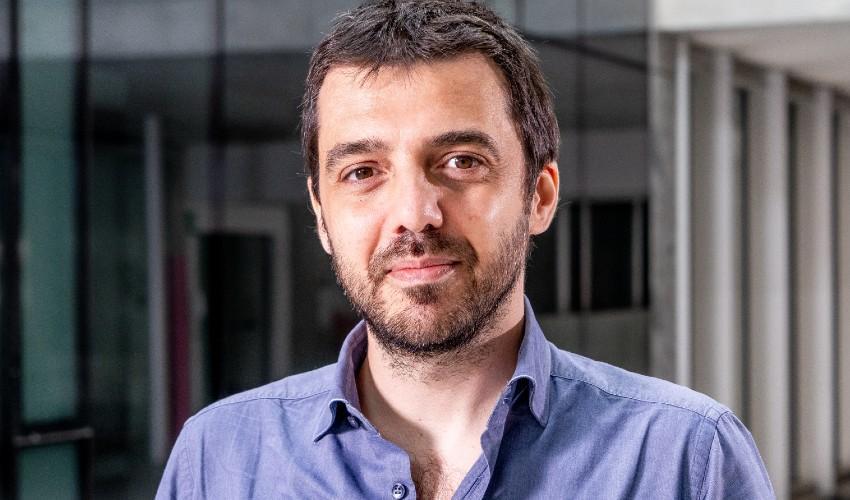
When Law Meets Network Analysis and Behavioral Economics
SANDRO ROMANO EXPLOITED THE RIVALRY BETWEEN FOOTBALL CLUBS TO REDUCE THE USE OF PLASTIC BAGS, SUGGESTED HOW TO NEUTRALIZE THE ANTICOMPETITIVE EFFECTS OF INSTITUTIONAL INVESTORS HOLDING LARGE STAKES OF DIFFERENT COMPANIES IN THE SAME INDUSTRY, AND DEVISED A MORE EFFECTIVE DESIGN FOR CONTACT TRACING APPSThe idea of “nudge” – according to which people’s cognitive biases and habits can be exploited in order to promote positive behavior – may have earned Richard Thaler the Nobel Prize in Economics, but the book that popularized the concept was co-authored by a jurist, Cass Sunstein. It’s only apt, then, that Sandro Romano, Assistant Professor at Bocconi’s Department of Legal Studies since September 2020 and a scholar with research interests in many fields, deals with a new form of nudge in his latest paper. In a field experiment, he exploited the rivalry between Italian football team supporters in order to reduce the use of plastic bags in a supermarket and argues that the same design can be used on a larger scale.
Professor Romano and Sotis placed two buckets next to each cashier in a supermarket in Naples. On one bucket, they placed the logo of a local charity, on the other one the logo of Juventus, the football team least liked by local supporters. When a customer purchased a bag, the cashier would add 10 cents in the Juventus bucket. Instead, when a customer did not purchase a bag the cashier would move 10 cents from the Juventus bucket to the one of the charity. At the end of each week, they donated the money in the buckets to the local charity and to a charity related to Juventus (an anti-charity). At the end of the four-week experiment, bag purchase had declined by 8-12%. Furthermore, bag consumption kept decreasing also in the following week, suggesting some persistence of the nudge effect. “Any suitable choice of charity and anti-charity can induce pro-environmental behavior,” Prof. Romano says, “even at no cost. We could conceive of exploiting not only sport rivalries, but also local rivalries such as that among the ‘contrade’ (neighborhoods) in Siena”.
A graduate in Economics, Romano obtained a PhD in Law and Economics at Erasmus University, Rotterdam, and a LLM at Yale.
In his job-market paper, forthcoming in the Yale Journal of Regulation, Romano studies the competitive effects of common ownership. Common ownership occurs when a large investment institution, such as Vanguard or Blackrock, simultaneously holds large stakes in many different companies in the same industry. The common wisdom is that this pattern of ownership leads to anticompetitive effects, and hence must be regulated. Building on the insights of network theory, however, he argues that in some “central” sectors common ownership might even increase the level of competition, and that the policy proposals that have been advanced to address the alleged anticompetitive effects of horizontal shareholding could backfire and further reduce the level of competition in the markets.
In another work co-authored with Prof. Ayres and Sotis, Prof. Romano makes use of network effects and behavioral insights to suggest a better design for the contact tracing apps used to fight the spread of COVID-19. They show that the app could be effective in reducing risk-taking if they provided benchmark information about peers’ behavior. “The main feature of the apps should be information on whether I’m taking more or less risk than my peers,” Romano says, “and the contact tracing function should only be a side feature.”
COVID-19 has been the focus of another study of Professor Romano’s on information processing. Mass media, when presenting data about the pandemic in a graph, use either a linear scale or a logarithmic scale. In a log scale graph, quantities on the Y-axis are not evenly spaced: moving a unit of distance along the axis does not mean adding a quantity, but multiplying by a factor – this presentation is often used to fit phenomena with exponential growth in a small space. Romano and his colleagues conclude that people exposed to graphs in a log scale have a less accurate understanding of how the pandemic is developing, make less accurate predictions on its evolution, and underestimate the risk. “Thus, mass media and policymakers communicating to the general public should always describe the evolution of the pandemic using a graph on a linear scale, at least as a default option,” they conclude.
Find out more
Alessandro Romano and Chiara Sotis, “Odi et Amo: A Nudge to Reduce the Consumption of Single Use Carrier Bag”, forthcoming in Waste Management, available online 27 October 2020, DOI: 10.1016/j.wasman.2020.09.021.
Alessandro Romano, “Horizontal Shareholding and Network Theory”, forthcoming in Yale Journal of Regulation, available on SSRN, DOI: 10.2139/ssrn.3255948.
Ian Ayres, Alessandro Romano, Chiara Sotis, “How to Make COVID-19 Contact Tracing Apps Work: Insights from Behavioral Economics”, available on SSRN, DOI: 10.2139/ssrn.3255948.
Alessandro Romano, Chiara Sotis, Goran Dominioni, Sebastián Guidi, “The Scale of COVIDâ€19 Graphs Affects Understanding, Attitudes, and Policy Preferences”, in Health Economics, published online before inclusion in an issue, DOI:10.1002/hec.4143.
by Fabio Todesco
